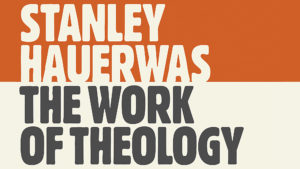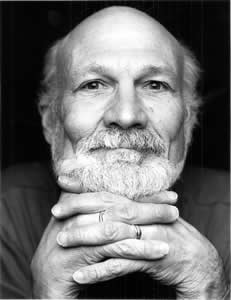Learning to Think Theologically in Youth Ministry
 I recently picked up Stanley Hauerwas' new book, The Work of Theology, in preparation for an upcoming Crackers & Grape Juice podcast. Jason, Morgan, and I will be chatting with Stanley next month at some point. In my reading of late I have been trying to connected what I have read to the field of youth ministry. Having spent the last year writing about missional theology in the field of youth ministry I am honed in on how larger issues of theology and dot ruined effect the lives of the students I work with on a daily basis. I want to ensure that youth ministry, my ministry in particular, is a place where theological discussion and reflection is welcomed and expected. I have found that all too often youth ministries are avoiding hard theological topics and opting for what Brian Zahnd describes as "Cotton Candy Christianity".
I recently picked up Stanley Hauerwas' new book, The Work of Theology, in preparation for an upcoming Crackers & Grape Juice podcast. Jason, Morgan, and I will be chatting with Stanley next month at some point. In my reading of late I have been trying to connected what I have read to the field of youth ministry. Having spent the last year writing about missional theology in the field of youth ministry I am honed in on how larger issues of theology and dot ruined effect the lives of the students I work with on a daily basis. I want to ensure that youth ministry, my ministry in particular, is a place where theological discussion and reflection is welcomed and expected. I have found that all too often youth ministries are avoiding hard theological topics and opting for what Brian Zahnd describes as "Cotton Candy Christianity".
"Theology so understood has no beginning and no end. The theologian always begins in the middle and the theologian's work is never finished. The discipline of theology so understood can be and often is quite frustrating because you often have no idea what you are doing or should be doing."
Does this not sum up the work of youth ministry perfectly? Those who work in the field of youth ministry are jumping into a person's life in the middle of it and rarely do we get to see the finished product. Youth pastors and volunteers rarely get to see the fruits of their labor. This is, in my opinion, the most frustrating part of youth ministry. Beyond the annoying emails from parents and teenage drama, not seeing the "finished product" can leave you wondering sometimes if what you are doing is really having an impact.
Theological training needs to be a staple of youth ministry. Students need to learn to think theologically.
Youth ministry in many cases today has become a mix of sloppy games, surface level Bible study, and Dr. Phil style counseling. Over the past 5 years I have become more and more convenienced that youth pastors or youth directors are afraid to dive into theological discussions because they are afraid of making youth group, Sunday School, or Bible studies "too churchy".
 Hauerwas has an answer to that excuse:
Hauerwas has an answer to that excuse:
To be an agent of practical reason requires that we must be a person of virtue.
He goes on to to explain that virtue requires training for action to be of value and that practical wisdom requires the habit of attentiveness. This means that youth ministries need to be training their students not only in the how part of thinking theologically but also we need to be showing students how to be attentive to the world around them. This means that we help students to see where injustice is happening, where God is at work in their schools, and how they are connected into the building ofGod's Kingdom.
Thinking theologically is not a scary proposition. Just because the perception of theology as a "seminary word" that only those people are allowed to do is the norm doesn't mean that it has to be. Youth ministry settings are the perfect place to break the mold of what is normal in church. Students have the energy and desire to learn about the world around them. Thinking theologically will help to bridge the gap between what happens on Sunday morning and what is happen the their 6.5 days of the week.